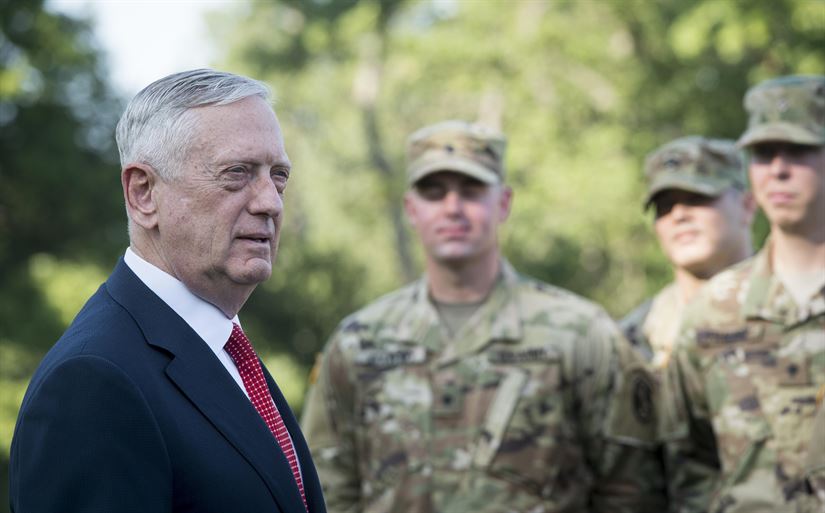American Secretary of Defense James Mattis released a force wide memo late last week, underscoring the importance of bringing America’s military back into a state of readiness, while also emphasizing the importance of alliance building and business reform in the Department of Defense.
Mattis, who echoed these sentiments in a speech he delivered on Monday, was decidedly less diplomatic in his choice of words within the memo when describing the nature of the threats the United States faces in the years to come. During his public address, Mattis spoke about regions that represent security risks, such as the Middle East, Europe and the Pacific, but he stopped short of directly accusing nations like Russia of being a threat to the United States. In his memo, however, the Defense Secretary pulled no punches.
“We are a Department of War. We must be prepared to deal with an increasingly complex global security situation, characterized by an accelerating decline in the management of the rules-based international order,” Mattis wrote. He then went on to cite North Korea, Russia, China and Iran, as well as the Islamic State in Iraq and Syria, as direct threats the American military must be prepared to counter.
“Pursuit of global security and stability requires our armed forces to remain the world’s preeminent fighting force,” Mattis continued, “and our department has three lines of effort to enable us to remain the world’s preeminent fighting force.”
Those three lines of effort, according to Mattis, start with rebuilding the military, which has been faced with continued combat operations, declining budgets, and a series of embarrassing and tragic incidents in recent years like collisions between Naval ships and merchant vessels, and a rash of Marine Corps aircraft crashes.
“We will execute a multiyear plan to rapidly rebuild the warfighting readiness of the Joint Force, filling holes in capacity and lethality while preparing for sustained future investment,” Mattis wrote. He went on to call for that plan to focus on a formidable nuclear deterrent, a powerful conventional force, and placing an added emphasis on irregular warfare.
The second line of effort, Mattis went on, must be strengthening existing alliances while pursuing and cultivating new ones. Those alliances, Mattis explained, can help to “temper” the plans of aggressive nations, and help to maintain global stability.
“Alliances and multinational partnerships provide avenues for peace, fostering conditions for economic growth with countries sharing the same vision,” Mattis wrote in the memo.
Finally, the third focal point of the Defense Secretary’s memo was on business reform, in which Mattis explained the importance of budget discipline and resource management. The Department of Defense recently began yet another fiscal year without an established budget, hampering programs Defense Department wide. Despite this delay, it seems likely that the Pentagon will receive an influx of funding once the budget is approved, and Mattis wants to ensure the American people see the Defense Department as a worthy investment.
Mattis closed out his memo by calling on all branches and agencies within the Defense Department infrastructure to collaborate across components to help realize these goals, and called every one of the “3 million men and women – uniformed and civilian – who fight for our Nation’s interests abroad,” to lead toward these goals with a sense of urgency.
After the written text, Mattis signed the memo by hand, writing, “Charge!” above his name.
Already have an account? Sign In
Two ways to continue to read this article.
Subscribe
$1.99
every 4 weeks
- Unlimited access to all articles
- Support independent journalism
- Ad-free reading experience
Subscribe Now
Recurring Monthly. Cancel Anytime.




COMMENTS